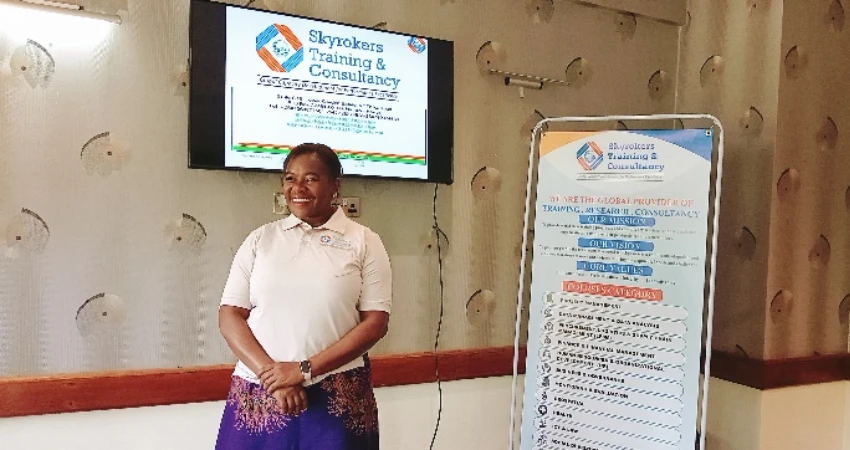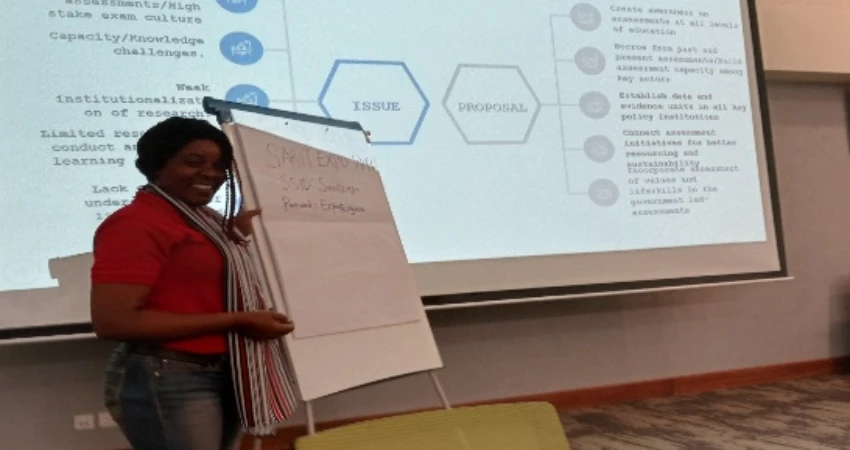 Jul 17, 2025 • Skyrokers
Jul 17, 2025 • Skyrokers
Why Your Business Needs a Training Partner—Not Just a Trainer
Hiring a trainer for a one-time session might feel like ticking a box. But is that all your team really needs?
Let’s face it, today’s workplace is changing fast. New tools, new roles, new customer expectations. If your staff is still relying on skills they picked up years ago, your business is already falling behind.
A trainer teaches.
A training partner builds with you.
Here’s why that difference matters.
1. A Trainer Delivers. A Partner Understands.
Trainers come in, deliver content, and leave. That’s it.
A training partner takes time to understand your business. They ask the right questions:
- What goals are you working toward?
- Where are the current skill gaps?
- What kind of learning style works for your team?
- What outcomes do you expect six months from now?
This deeper understanding means the training isn’t just a general workshop. It becomes something that actually fits your people and your operations.
2. Short-Term Training Often Dies Fast
Think about the last one-day workshop your team attended. How much of that knowledge is still being applied today?
Chances are, most of it disappeared within a week.
Training partners don’t stop at delivery. They track how the training is applied. They offer follow-up sessions. They review the impact. They keep the learning going.
This long-term support helps your team remember, apply, and improve.
3. You Get Tailored Programs—Not Templates
Most trainers recycle slides from one organization to another. It saves time, but it rarely works.
Training partners build with you. They customize the content based on:
- Your industry
- Your staff’s current knowledge level
- Specific projects you're working on
- New regulations affecting your operations
For example, a logistics company needs different compliance training than a bank. A partner sees this and adapts—every time.
4. They Help You Measure What Matters
What’s the point of training if you can’t measure results?
A training partner helps you define clear goals:
- Do you want to reduce customer complaints?
- Are you aiming for faster project delivery?
- Do you want to improve how your team uses a specific tool?
Together, you track real outcomes—not just attendance lists or certificates.
This approach turns training from an event into a strategy.
5. Your People Feel Valued
When you invest in long-term development, your team notices.
They see that you're not just trying to fix a one-time issue. You're building their careers.
That builds loyalty.
It reduces turnover.
It also creates a culture where learning becomes part of the job, not an afterthought.
6. You Save Time and Money Over Time
One-off trainings can cost less upfront. But what happens when they don’t work?
- You hire another trainer.
- You repeat the same workshop.
- You lose hours of productivity.
Training partners help you get it right the first time. They build a program that works and adjust it as your team grows.
It’s not just training—it’s a relationship that grows with your business.
7. You Stay Relevant
Industries change. Regulations shift. Tools update. Competitors move fast.
When you have a training partner, you get early advice. They keep you informed on trends. They help you reskill when needed, not after it’s too late.
Imagine having a partner who tells you, “This compliance rule will change in six months. Let’s prepare now.”
That’s how you stay ready, not reactive.
8. You Build Internal Capacity
A good training partner doesn't make you dependent. They help your managers and team leaders grow into mentors and internal coaches.
Over time, your company learns how to train itself.
That’s the real win: You stop renting knowledge and start owning it.
Final Thought
You don’t just need someone to talk to your team for a few hours. You need someone who grows with you, understands your goals, and helps your team level up, every step of the way.
Ask yourself:
Are you buying a session or building a solution?
Your answer could shape how your business grows from here.





